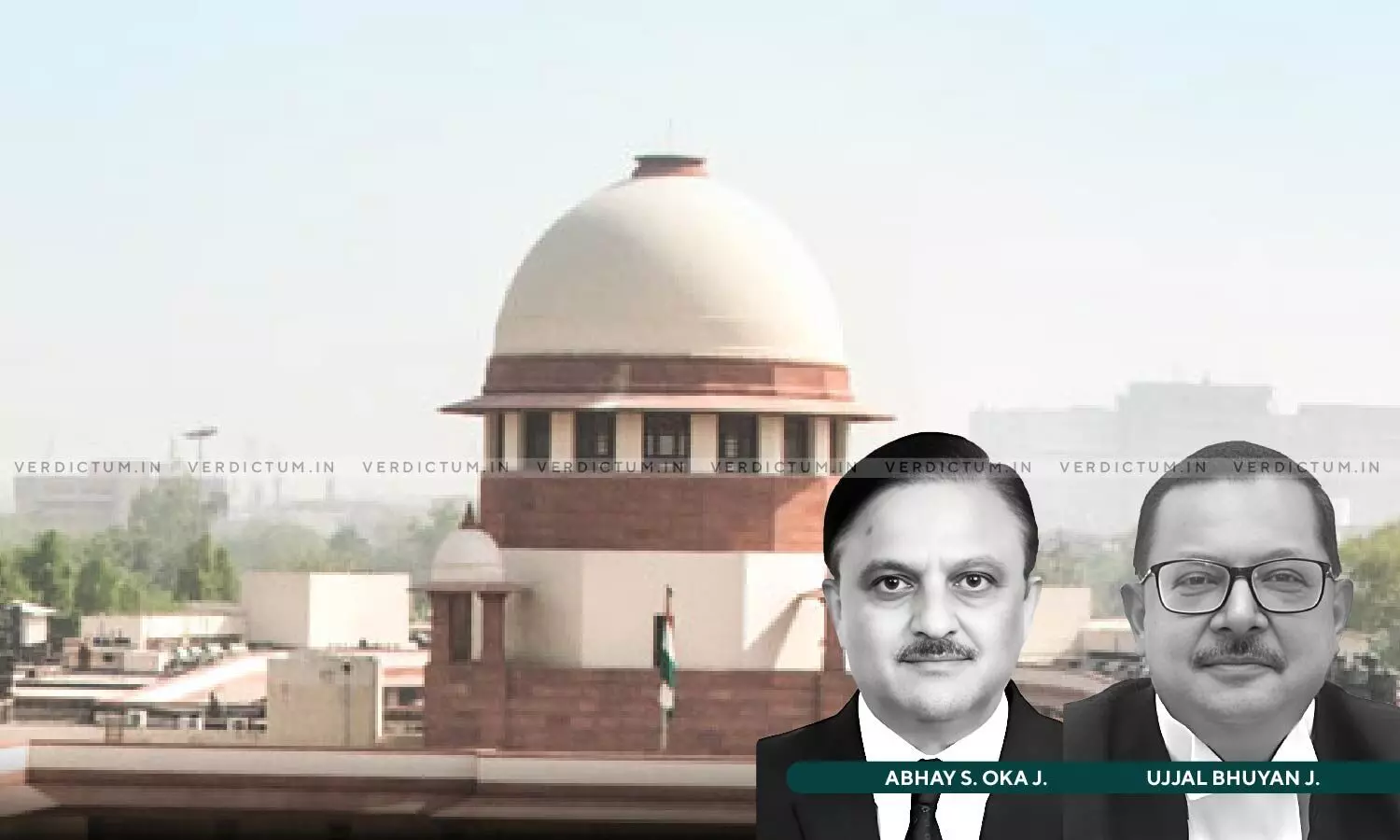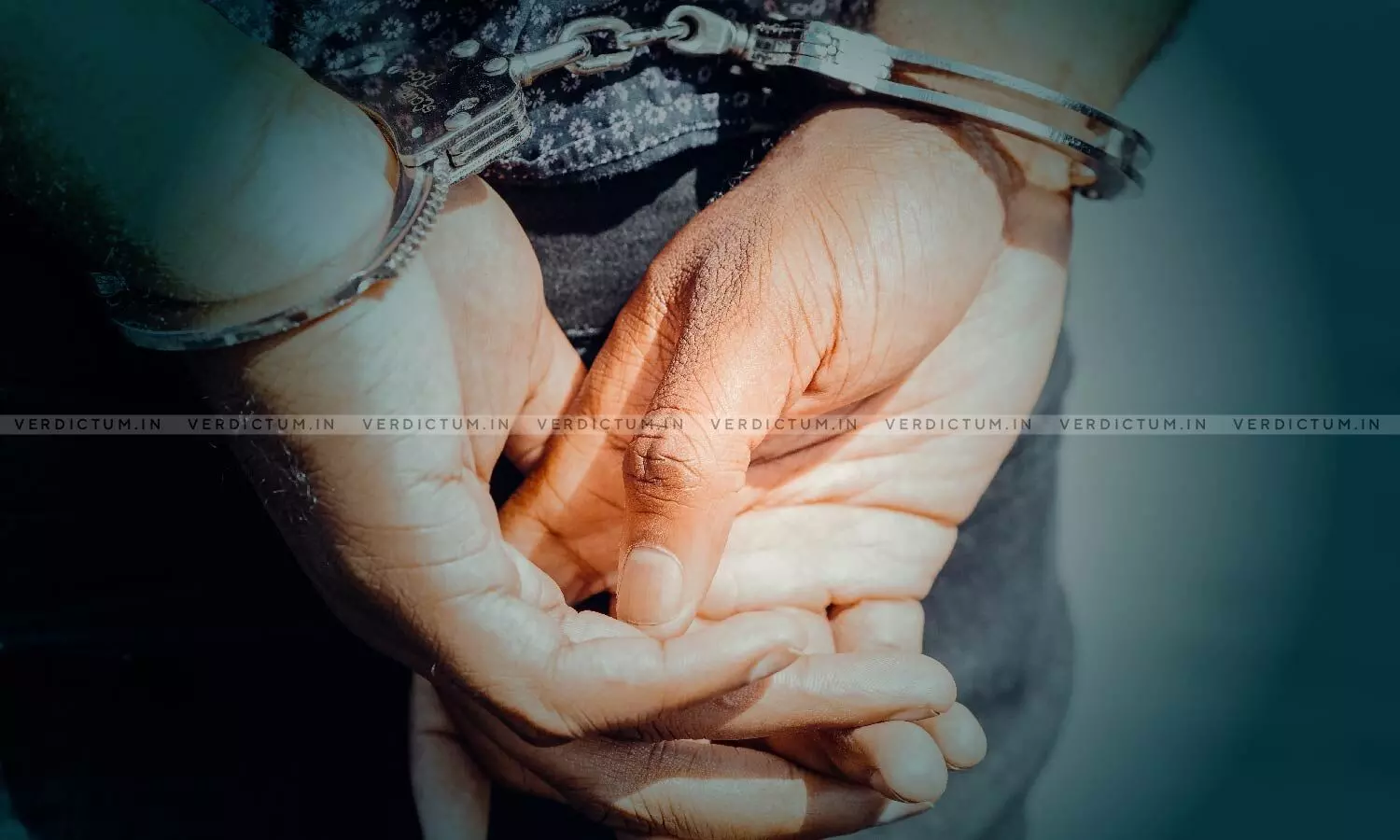
Justice Abhay S. Oka, Justice Ujjal Bhuyan, Supreme Court
Duty Of Court To Release Accused On Bail If Their Fundamental Rights Have Been Violated During Or After Arrest: SC
 |
|The Supreme Court dismissed ED’s Appeal against Chhattisgarh High Court’s decision granting bail to a PMLA accused.
The Supreme Court has held that a Court must release an accused on bail if their fundamental rights under Articles 21 and 22 of the Constitution have been violated during or after their arrest.
The Court dismissed an Appeal filed by the Directorate Of Enforcement (ED) challenging the decision of the Chhattisgarh High Court which granted bail to the Respondent accused under Section 4 of the Prevention of Money Laundering Act, 2002 (PMLA).
A Bench of Justice Abhay S Oka and Justice Ujjal Bhuyan held “Once a Court, while dealing with a bail application, finds that the fundamental rights of the accused under Articles 21 and 22 of the Constitution of India have been violated while arresting the accused or after arresting him, it is the duty of the Court dealing with the bail application to release the accused on bail. The reason is that the arrest in such cases stands vitiated. It is the duty of every Court to uphold the fundamental rights guaranteed under Articles 21 and 22 of the Constitution.”
ASG Suryaprakash V Raju represented the Appellant, while Advocate Shivam Batra appeared for the Respondent.

Brief Facts
By the impugned order, the High Court granted bail to the Respondent after finding that his arrest was illegal.
The High Court in its Order noted that Respondent was detained and taken into custody at the IGI Airport, New Delhi when the Bureau of Immigration executed an LOC issued against him and held him in custody on behalf of the ED.
Court’s Reasoning
The Supreme Court noted that the physical custody of the Respondent was taken over by the ED from the Bureau of Immigration and on the very next day an arrest memo was prepared by the ED at Raipur. He was produced before the Court on the same day.
“The respondent was not produced before the nearest learned Magistrate within 24 hours from 11.00 a.m. on 5th March, 2022. Therefore, the arrest of the respondent is rendered completely illegal as a result of the violation of clause 2 of Article 22 of the Constitution of India. Thus, the continuation of the respondent in custody without producing him before the nearest Magistrate within the stipulated time of 24 hours is completely illegal and it infringes fundamental rights under clause 2 of Article 22 of the Constitution,” the Court explained.
The Bench pointed out that the Respondent’s arrest was vitiated on completion of 24 hours in the custody. Since there was a violation of Article 22(2) of the Constitution, even his fundamental right to liberty guaranteed under Article 21 has been violated.
Consequently, the Court held that “Therefore, when arrest is illegal or is vitiated, bail cannot be denied on the grounds of non-fulfillment of twin tests under clause (ii) of sub-section 1 of Section 45 of PMLA.”
Accordingly, the Supreme Court dismissed the Appeal.
Cause Title: Directorate Of Enforcement v. Subhash Sharma (Neutral Citation: 2025 INSC 141)
Appearance:
Appellant: ASG Suryaprakash V Raju; AOR Mukesh Kumar Maroria; Advocate S Merusagar Samantaray, Arkaj Kumar, Ashok Panigrahi, B.K. Satija, Annam Venkatesh and Zoheb Hussain
Respondent: Advocate Shivam Batra